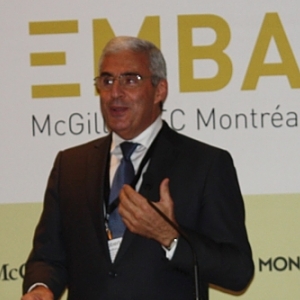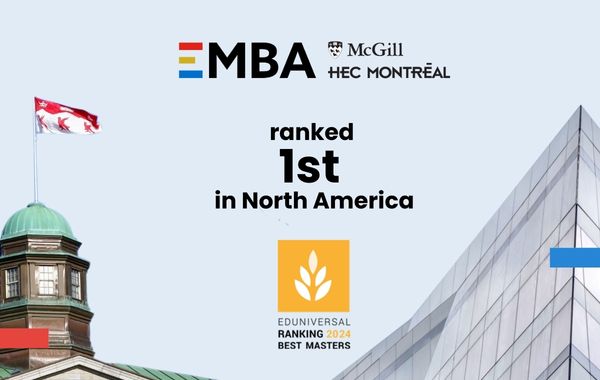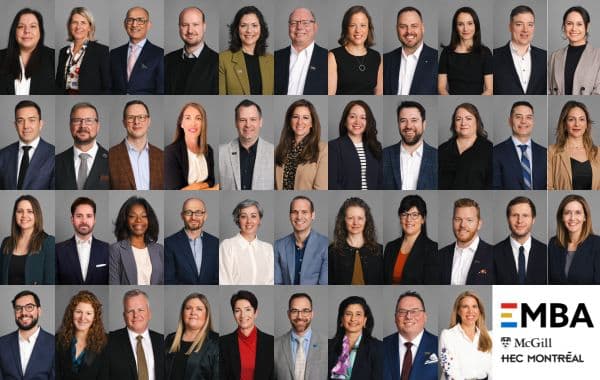 Robert Dutton, a 1977 HEC Montréal alumnus, Chairman of the Advisory Board of the new HEC Montréal École des dirigeants and former President and CEO of RONA, is the patron of the incoming class the McGill-HEC Montréal EMBA Program. The class is very fortunate to have him as a patron because he will challenge them to be their best. He launched that challenge right from his first interaction with the class at the program orientation dinner, as he addressed a subject he is particularly passionate about: social responsibility.
Robert Dutton, a 1977 HEC Montréal alumnus, Chairman of the Advisory Board of the new HEC Montréal École des dirigeants and former President and CEO of RONA, is the patron of the incoming class the McGill-HEC Montréal EMBA Program. The class is very fortunate to have him as a patron because he will challenge them to be their best. He launched that challenge right from his first interaction with the class at the program orientation dinner, as he addressed a subject he is particularly passionate about: social responsibility.
Mr. Dutton went straight to the heart of the matter, with two key questions:
- What must a company do to be responsible?
- How does it do it?
He used the ISO 26000 standard and its seven principles and guidelines, to describe responsible behavior: accountability, transparency, ethical behavior, taking due account of the interests of the stakeholders, respecting the principle of legality, taking into account international norms of behavior and respect of human rights.
“These seven principles are both a guide and a trap. They are a guide, because they clearly codify the expected behavior of a company. But they also are a trap, because they seem so obvious, so indisputable! Respect the law, be honest … what could be more obvious? They are obvious, in fact, until we try to put them into practice,” said Mr. Dutton.
He then addressed how difficult it is for a CEO to ensure responsible behavior throughout an organization. Referencing the Charbonneau Commission, he highlighted the obstacles that an organization faces in its search for responsible behavior, but he also suggested four solutions:
1) Knowing: “A leader reveals his priorities in the way he manages his organization.
2) Speaking and making people speak: “An organization has no right to leave its employees in a kind of moral grey zone nor to let them to struggle to find out everything by themselves”, he says. “[We must] encourage the detection of unacceptable practices which do not correspond to the fundamental values of the company”, added Mr. Dutton.
3) Acting: “The boss must lead by example… and an organization has no communication tool more powerful than its own system of rewards and sanctions. […] ”
4) Deciding: “Deciding [to do what’s right] even when it’s difficult. Deciding especially when it’s difficult. [Being socially responsible] is certainly profitable in the long run, if only because it increases customer loyalty and facilitates recruitment. […] But these benefits are difficult to measure, while the short-term costs show up very quickly in the financial statements. Social responsibility is not often easy and it’s not always immediately profitable, but if it was, we would not be talking about it here. ”
Mr. Dutton concluded by saying “Organizations are not ‘them’, they’re ‘you’ and ‘me’ and ‘us’”, which means that judgement and courage will be needed. Judgement to know what is right and courage to follow through with action. This resonated strongly with the class of 2015. Over the next 15 months, these 44 managers and entrepreneurs will keep his thoughts in mind as the EMBA program helps them develop their “courage to act.”



